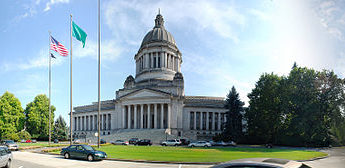
By Christopher Chavis, The Daily Yonder
December 10, 2024
On January 20th, Donald Trump will take office as the 47th President of the United States and become the first President since Grover Cleveland to serve two non-consecutive terms. While there are a lot of unknowns about the coming four years, there are some battles that will be retreads from President Trump’s first term.
Anyone who has advocated for rural health care access will remember one of the coming battles: Medicaid work requirements. In recent weeks, Republicans have indicated an interest in revisiting this issue. For those of us who remember that battle in rural and Tribal communities, it is sending up alarm bells.
Section 1115 of the Social Security Act provides states with a mechanism through which they can experiment with approaches to Medicaid delivery. To do this, states must submit a request for a waiver to the Centers of Medicaid and Medicare Services (CMS). The only two broad rules are that the waivers must be budget neutral (meaning the waiver cannot result in the Medicaid program incurring additional costs) and must promote the objectives of the Medicaid program.
During the first Trump Administration, states were encouraged to submit waiver requests to implement Medicaid work requirements, a decision which signaled the weaponization of the Section 1115 authority as a means of achieving a long-standing Republican policy goal. Ultimately, thirteen such waivers were approved. Federal lawsuits soon followed and stories about how these requirements could impact rural communities began to emerge.
Lawsuits by Medicaid recipients in Kentucky, Arkansas and New Hampshire provided us with stories, all of which were familiar. People reported caring for sick parents, difficulty getting to a job because of unreliable transportation, and irregular hours as barriers to fulfilling the requirement. Federal courts ultimately invalidated these approvals, citing that work requirements do not further the purpose of the Medicaid program, improving access to health care.
In Arkansas, the only state where the requirement lasted long enough to see people lose coverage, people could only report compliance via an online portal. Unsurprisingly, access to the online portal presented a barrier so even people who could comply with the requirement were faced with being locked out of Medicaid. Given the disparities in access to high-speed internet in rural spaces, it is not difficult to see how this could present a significant barrier.
The issue had a particular resonance for those working in Indian Country. The federal trust responsibility imparts a duty upon the federal government to provide resources to Tribal nations and American Indian and Alaska Native (AI/AN) people. These resources act as compensation for the forceful taking of land and resources by the United States and its predecessor colonial powers.
The Indian Health Service (IHS) is the vehicle through which the federal government delivers health care to American Indian people. However, it has never been funded at a level that lets it even remotely come close to fulfilling its mandate.
In 1976, Congress recognized this plight and offered a partial band-aid by including a provision in the Indian Health Care Improvement Act (IHCIA) that allowed IHS and Tribally run facilities to bill Medicaid for services provided to beneficiaries. Since these facilities cannot bill patients, this was an important lifeline. The decision to allow states to impose additional requirements to accessing this funding represented the federal government allowing a state government to intervene in the trust relationship between the United States and Tribal nations.
Roughly half of AI/AN people live in rural spaces, and they are, by far, the most rural population in the country. Any issue that affects rural spaces more broadly will have an outsized effect on Indian Country. While CMS ultimately allowed states to seek exemptions for citizens of federally recognized Tribes, it was completely up to the states as to whether to pursue this, which allowed them to remain in the driver’s seat.
The loss of Medicaid access threatens all rural health facilities, which already operate on razor thin margins. For IHS and Tribally run facilities, there is an additional layer of danger. The imposition of additional paperwork requirements may deter eligible AI/AN people from signing up for Medicaid in the first place. After all, they cannot be billed for care provided through an IHS or Tribal facility, so they do not share the same financial risks as an individual non-Native person. However, without a third-party payor such as Medicaid, the cost of care comes from the budget of their health facility, which depletes an already limited funding pool.
While federal courts have invalidated work requirements because they do not meet the Medicaid program’s objective, Republicans could simply amend the Social Security Act to change that. And they have signaled that imposing work requirements would be a cost savings strategy so they are already factoring in that people will lose access to care.
Christopher Chavis grew up in rural Robeson County, North Carolina, and is a frequent writer and speaker on baseball history and rural access-to-justice issues. He is a citizen of the Lumbee Tribe of North Carolina. He is also a former Policy Director at the National Indian Health Board.
This article first appeared on The Daily Yonder and is republished here under a Creative Commons license.


